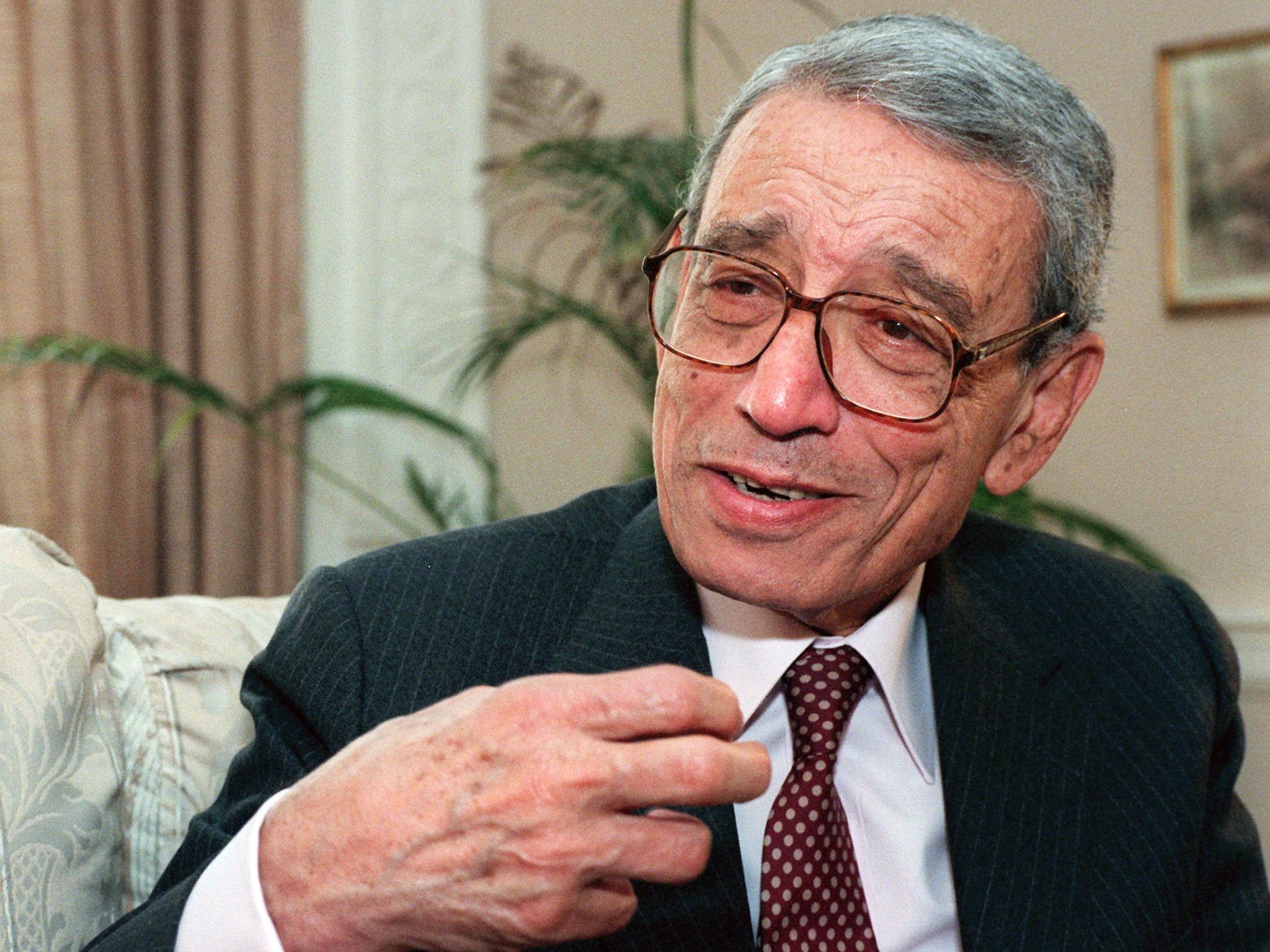Boutros Boutros-Ghali had a message of hope for unity in the Middle East
‘There is no reason this unity should not happen… not because they have the same language or the same religion, but because they are neighbours’

Your support helps us to tell the story
From reproductive rights to climate change to Big Tech, The Independent is on the ground when the story is developing. Whether it's investigating the financials of Elon Musk's pro-Trump PAC or producing our latest documentary, 'The A Word', which shines a light on the American women fighting for reproductive rights, we know how important it is to parse out the facts from the messaging.
At such a critical moment in US history, we need reporters on the ground. Your donation allows us to keep sending journalists to speak to both sides of the story.
The Independent is trusted by Americans across the entire political spectrum. And unlike many other quality news outlets, we choose not to lock Americans out of our reporting and analysis with paywalls. We believe quality journalism should be available to everyone, paid for by those who can afford it.
Your support makes all the difference.The former UN secretary-general Boutros Boutros-Ghali has died aged 93, the UN Security Council has announced.
A distinguished Egyptian politician and law professor, Mr Boutros-Ghali served as the world’s most senior diplomat from 1992 to 1996.
Mr Boutros-Ghali has observed from the side lines during the tumultuous history of the Middle East throughout much of the past century, and in one of his last interviews offered a message of hope for what he called “Arab unity”.
Speaking to Canada’s Global Brief in 2010, Mr Boutros-Ghali said when he was a student in 1945, there was a belief that the world would see an Arab United States.
“Now we are more pessimistic, and we believe that this will not happen soon,” he said.
But the seasoned diplomat did not rule out the potential to unite the Middle East, stressing this only “depends on leadership”.
He said: “With the right leader or leaders, there is no reason for which this unity should not happen. There is this political will to have a better integration among the different Arab countries – not because they have the same language or the same religion, but because they are neighbours.
“You have nearly a half million Egyptians now working in Jordan. You have well over a million Egyptians working in the Gulf. You have countless many thousands of Iraqis living in Egypt today; and how many thousands of Sudanese in Egypt? So the integration at the level of the people already exists.”
Speaking in 2014, Mr Boutros-Ghali was interviewed on France 24 and touched on similar issues – this time with the new addition of the Isis jihadist group into the mix.
But of Isis, which had just swept across Iraq and into Syria taking town after town in a rapid advance, Mr Boutros-Ghali was utterly dismissive.
He said: “This [group] will have no real effect, because it does not correspond to the globalisation, to the new era and new technology.
“This concept corresponds to what happened 500 years ago – so it will have no future.”
Join our commenting forum
Join thought-provoking conversations, follow other Independent readers and see their replies
Comments